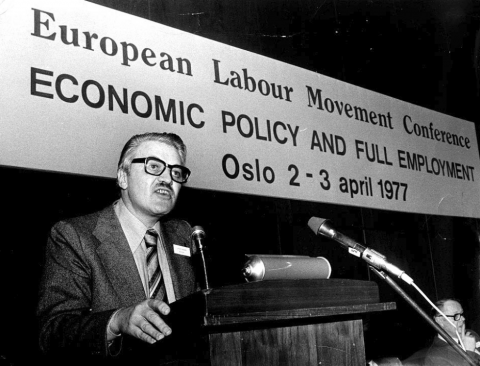
Mission
The ELHN Working Group European Integration of Trade Unions aims to bring together those historians interested in the organising of labour for concrete struggle at the European level from the factory level to the firm and political- institutional levels (local council, regional powers, national and European level). Departing from the network that they created for the writing of the 40th year of the history of the European Trade Union Confederation and national trade unions (Tilly and Ciampani (eds) 2017) the group aims to continue this cooperation by extending the reflection to the history of the European federations which had to confront precisely such struggles from below and find ways to build European solidarity not just across borders but also across sectors by bringing those conflicts to the European institutional arena also in particular periods of European integration. Last, but not least, the group would like to engage into a historiographical reflexion from on-going projects about the history of European trade unionism in the context of European integration and international solidarity driven by European trade unions.
Scope
The creation of the European Trade Union Confederation (ETUC) in 1973 marked a new departure in the history of European trade unionism by creating a specific common agenda and institutional link between European trade unions. The conviction that the creation of a Single Market based on the principle of free-movement in the framework of a European economic and monetary union would undermine the basis of national trade unionism opened the way to a new type of trade unionism. It aimed to overcome ideological differences and Cold War divides by a common action in the framework of the process of European integration. Such transformation had been already announced and practiced in various professional sectors following concrete key struggles against multinational companies, being the metallurgy one of the most relevant to that aim. The building of a European integration of trade unions, therefore, has not just been driven by institutional constraints marked by European Union institutions, but more decisively from concrete struggles of European dimension to which European federations of trade unions had to confront with the creation of European solidarity and common actions.
Activities
In 2017 the working group brought together researchers working on the metallurgy sector and in 2019 they would like to extend the reflection to other professional sectors of European trade unionism and focusing on key struggles and dimensions of European integration as conceived by trade unions, including the means to such action like legal activism at European and international level.
Contact
- Sigfrido Ramírez Pérez, Max-Planck Institute for European Legal History, Ramirez@rg.mpg.de
- Claude Roccati, University of Limoges, France, clauderoccati@hotmail.com
External links
[last updated 6 August 2018]
